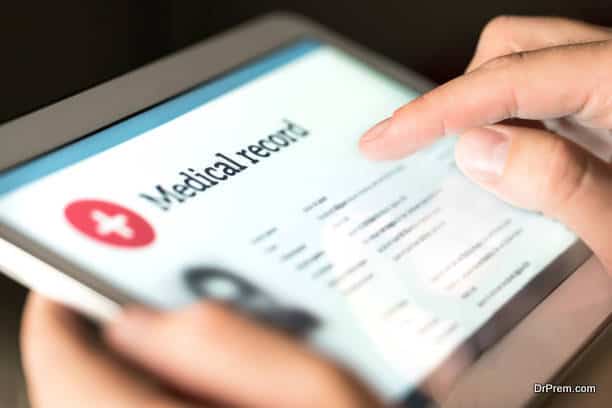We sometimes take the medical health sector for granted. We know that they will always be there for us to fall back on. We don’t think twice about sustained injuries that were once a death sentence a century ago. We have indeed come a long way in terms of medical development. Doctors and nurses have helped pave the way for this system that acts as the scaffolding for societal development. How can you expect a modern civilization to exist without medical support to fall back on in times of crisis?
Nurses are some of the most overlooked and underappreciated members of the medical industry. Not only do they work tirelessly to ensure that the patient/ client is safe and healthy, but they have to deal with a fair deal of unpleasantness during their shift. Difficult patients and remaining on your feet for hours can take their toll on your health and mental wellbeing.
This article is going to be talking about nurses in the healthcare industry a little more. Most people don’t know what a nurse’s role is all about, so we are here to educate you on that.
Here are some of the common roles that nurses play in today’s healthcare industry.
1. Acting Leaders Of The Nursing Staff

Among the nursing staff, some individuals stand out and act as the voice for the nursing community. While other nurses may be too busy to tend to logistical, administrative, and managerial issues, a nursing leader takes the responsibility to manage all of these variables.
If you think nurse leadership is merely assuming unsaid responsibility and acting accordingly, here’s the truth. Leaders in the nursing community have adequate leadership/ assertive skills as well as credentials to match. Most of them have taken courses in administration to ensure that they are perfectly equipped to deal with whatever issues are thrown their way. Nursing leaders act as the voices for the nursing staff and form the necessary bridge between management and the staff on the ground.
2. Practicing Empathy
One of the essential roles of a nurse is to ensure empathetic practice with all the patients that come into the hospital. Empathy requires nurses to understand the patient’s situations, acknowledge their emotions, and wish the best for them. Dealing with a life-threatening issue and running into a nurse that doesn’t seem to care can be an extremely unpleasant experience in a hospital setting. Nurses are taught certain empathetic practices such as engaged listening, mirroring, and other common factors that could help the patient feel comfortable. The entire point of practicing empathy is to show the patients that the staff cares and is looking out for you.
3. Educating The General Public

As we saw with the novel pandemic, the early stages of COVID brought a resounding panic. Everyone was confused as to how to traverse this time. We saw doctors and nurses working together to educate the masses and ensure that the infection didn’t spread further than it already had. Much like with COVID, nurses have to educate their current patients as well. It is essential to tell patients about their illnesses, what to expect, and everything else they need to know. Doctors don’t always have the time to spend with patients. Therefore, nurses have to fill in, provide basic hygiene products like the ones on https://www.ontexhealthcare.com.au, and educate the patients.
It’s a tough job, to say the least, because it often involves telling terminal patients that they are dying. Educating patients is a tough part of the job but certainly one of the many roles that set nurses apart from the rest.
4. Communicating With Other Members Of The Staff
One of the hardest parts of the job may be one of the most mundane as well. Something as seemingly trivial as conveying information between staff members might be a challenge when there is so much going on in the ER. With cases coming and going and each patient requiring urgent medical attention, it’s hard to ensure effective communication in the ward.
Though it may be challenging, there is no compromise for effective communication. a breakdown could result in severe casualties if you aren’t careful.
5. Recording Medical Information

It is essential to record medical information as soon as the patient enters the hospital. Referring back to records is one of the most important aspects of medical practice. Moreover, with complete documentation, it’s considerably easier for patients to take advantage of insurance facilities to cover their medical expenses. Furthermore, if a patient ever plans on switching doctors or shifting hospitals, accurate and complete documentation is required. You need to refer back to all the medical records from their first visit to gain a holistic idea of what ailments the patient is dealing with and how best to overcome to issue. Even a minor oversight can cause issues in the treatment process.
6. Aftercare
Post-discharge care is a very important part of recovery. Nurses sometimes need to visit patients to ensure that everything is going well. Dressing wounded, administering injections, and conducting general check-ups are part of a nurse’s job. The majority of home check-ups come when dealing with the geriatric population. Many of them can’t commute to the hospitals frequently. Therefore, having a nurse visit is a safe and more convenient option. Nurses often get paid overtime or receive bonuses when taking house calls. It’s a great way to supplement their income and help elderly and sick patients in the bargain.
There we have some of the common roles of a nurse in the current healthcare sector. The issues of 2021 are far different from that of the last few decades. Nurses had to pull multiple shifts to deal with the influx of COVID patients at the beginning of the previous year. Though things are considerably better now, there is still a long way to go.It’s time we acknowledged and started giving nurses the respect they deserve. Nurses are essential workers in the medical health sector, and without them, we might not have reached our current position in society. We hope you have taken away something from this piece and developed a new appreciation for these medical heroes.
Article Submitted By Community Writer




